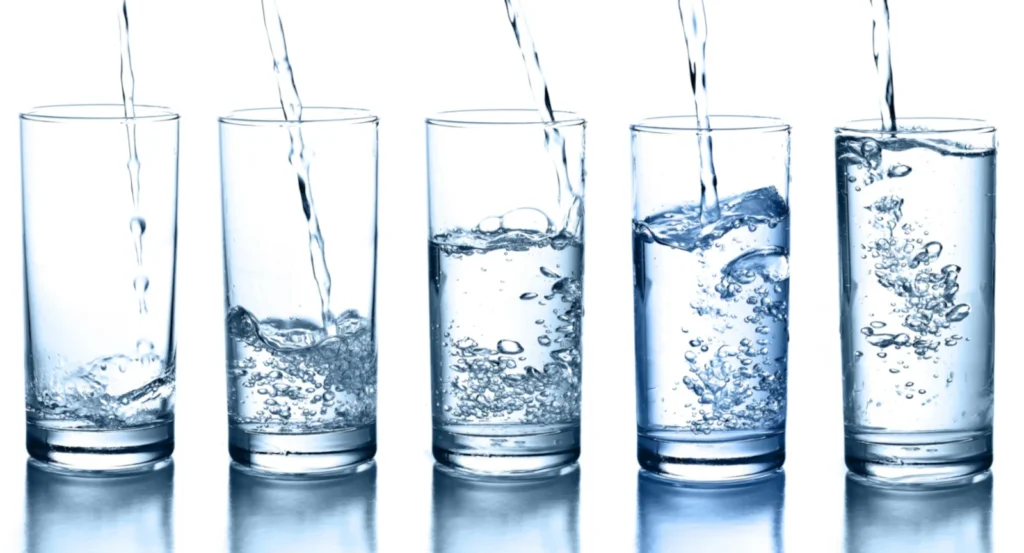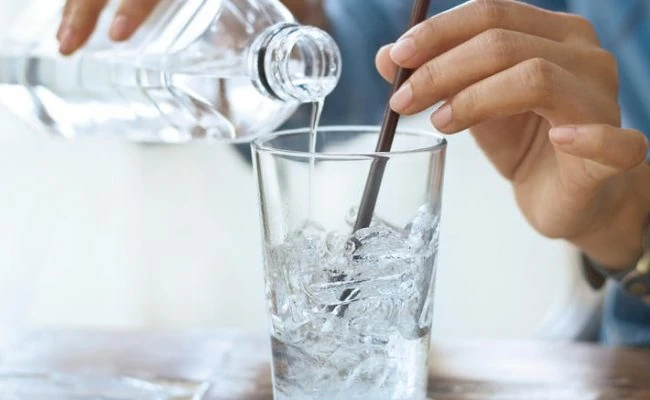
Does Water Have Calories?
Water is an essential part of life. Every living thing depends on Water to survive. People drink Water every day, but many wonder, “Does water have calories?” The simple answer is no; pure Water does not contain calories.
However, there is more to understand about this topic, including how Water affects the body, the role of flavored Water, and the benefits of drinking enough Water daily.
What Are Calories?
Calories are units of energy. The body gets calories from food and drinks to function correctly. When consumed, the body uses these calories to provide energy for daily activities like walking, thinking, and even breathing. If more calories are consumed than needed, they are stored as fat.
Since Water does not contain carbohydrates, proteins, or fats, it does not have calories.
Why Doesn't Water Have Calories?

Water is a simple molecule made of hydrogen and oxygen (H2O). Unlike food and beverages that provide energy, Water does not contain nutrients that the body can break down for energy. Because of this, drinking water does not contribute to weight gain or calorie intake.
The Role of Water in the Body
Although Water does not provide calories, it is still vital for survival. Here are some essential functions of Water in the body:
- Hydration – Water keeps the body hydrated, helping organs function properly.
- Temperature Regulation – Sweating and respiration help maintain body temperature, and Water plays an essential role in these processes.
- Digestion and Nutrient Absorption – Water helps break down food and transport nutrients throughout the body.
- Detoxification – The kidneys use Water to flush out waste and toxins.
- Joint Lubrication – Water helps keep joints lubricated, reducing discomfort and improving mobility.
- Skin Health – Staying hydrated helps maintain healthy skin by preventing dryness and irritation.
- Mental Clarity – Proper hydration helps improve focus, memory, and overall brain function.
Does Flavored Water Have Calories?
While pure Water has no calories, some flavored waters do. The calorie content depends on added ingredients such as sugar, fruit extracts, or artificial sweeteners. Here are some common types of flavored Water and their calorie content:
- Infused Water – Water with added fruits, herbs, or vegetables generally has no calories unless sugar is added.
- Bottled Flavored Water – Some store-bought flavored waters contain added sugars, increasing the calorie content.
- Carbonated Water – Plain sparkling Water has no calories, but flavored versions may contain added sweeteners.
- Vitamin Water – Some brands of vitamin water contain sugar and calories, so it’s essential to read the label.
Does Water Help With Weight Loss?
Many people trying to lose weight choose Water as their primary beverage. Here’s how drinking water can support weight loss:
- Zero Calories – Since Water has no calories, it helps reduce overall calorie intake when replacing sugary drinks.
- Boosts Metabolism – Drinking cold Water may slightly increase metabolism as the body works to warm it up.
- Reduces Hunger – Drinking Water before meals can help control appetite and prevent overeating.
- Prevents Water Retention – Drinking enough Water reduces bloating by balancing fluid levels in the body.
- Improves Workout Performance – Staying hydrated enhances physical performance and helps muscles recover faster.
Can Drinking Too Much Water Be Harmful?
While drinking Water is essential for good health, excessive water intake can be harmful.
The amount needed varies based on age, activity level, and climate, but a general guideline is 8-10 glasses (2-3 liters) per day.
Best Ways to Stay Hydrated
- Drink Water Regularly – Don’t wait until you feel thirsty; drink Water throughout the day.
- Eat Water-Rich Foods –like watermelon, cucumbers, and oranges contain high amounts of Water.
- Monitor Urine Color – Light yellow urine usually indicates proper hydration, while dark urine suggests dehydration.
- Carry a Water Bottle – Keeping a bottle of Water nearby makes it easier to drink regularly.
- Set Reminders – Use phone alarms to remind yourself to drink Water at regular intervals.
- Avoid high intake of Caffeine and Alcohol – These can cause dehydration, so balance them with plenty of Water.
- Start Your Day with Water – Drinking a glass of Water in the morning helps kick-start hydration for the day.
- Use a Reusable Bottle – Having a refillable water bottle encourages more frequent drinking and reduces plastic waste.
Other Benefits of Drinking Water
Drinking water is not just about hydration. It provides many other benefits, such as:
- Boosting Energy Levels – Dehydration can cause fatigue, so staying hydrated helps maintain energy.
- Supporting Heart Health – Proper hydration supports blood circulation and reduces the risk of heart disease.
- Preventing Headaches – Dehydration is a common cause of headaches, so drinking enough wWater can help prevent them.
- Improving Digestion – Water aids in breaking down food and preventing constipation.
Conclusion
Water is a vital component of life that supports many body processes and has no calories. Although there are no calories in pure Water, some flavored or improved waters may include additional sugars, which raises the calorie count. Water consumption improves digestion, weight loss, and general health.
Mod action is essential because excessive water consumption might be detrimental. You may enhance your health and well-being without worrying about consuming extra calories by drinking enough Water. Long-term health benefits can result from developing the habit of routinely drinking Water and selecting it over sugar-filled beverages.
